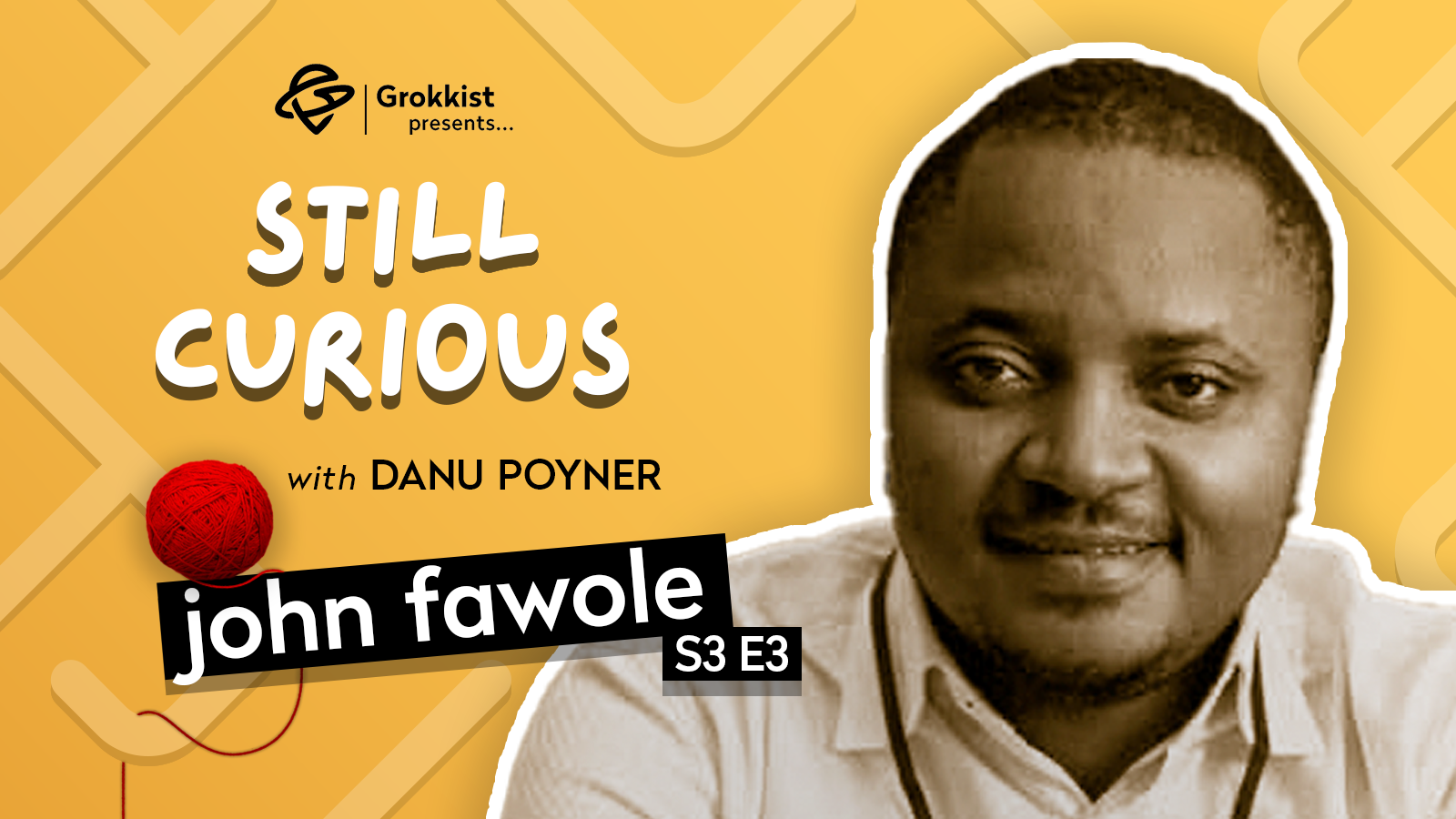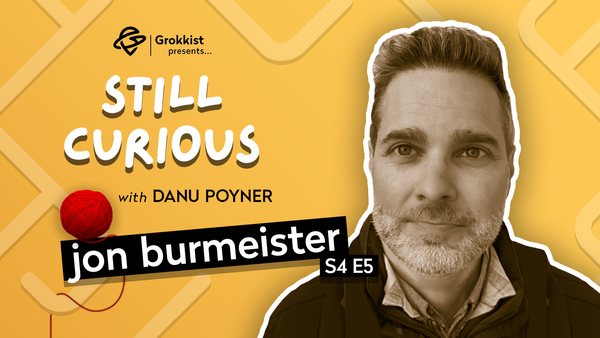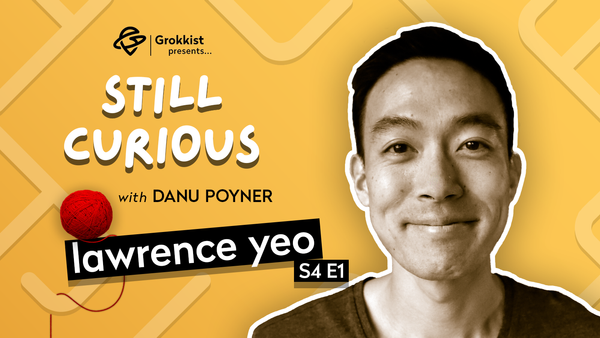Listen Now
About the Episode
Key Topics
- John's journey to becoming Nigerian National Chess Champion, US National Master and World Chess Federation Master
- What chess can teach us about creativity, commitment, patience, and problem solving
- The grassroots advocacy and coaching work John does to advance the state of the game and teach young people important life skills through chess
- How chess is changing thanks to software tools, AI, and representation in popular culture
Summary
International Chess Master John Fawole discusses the recent boom in chess, driven in part by the popularity of the Netflix series "The Queen's Gambit." He also talks about the impact of artificial intelligence on the game, the importance of physical fitness for chess players, and the transferable skills between chess and business. John emphasises the importance of doing what you love and being obsessed with it to achieve great results.
John also shares his personal journey in becoming a chess master, including his early introduction to the game through friends in high school and his experience playing in local tournaments in Nigeria. He discusses the challenge of balancing chess and academics in college and the difficult decision he had to make between pursuing chess or computer engineering.
John also talks about the role of chess in education and how it can benefit students in developing critical thinking and problem-solving skills. He shares his experience teaching chess to children and the impact it has had on their academic performance and confidence.
Throughout the episode, John emphasises the importance of discipline, hard work, and persistence in achieving success in any field.
Our conversation on chess provides valuable insights into the game's technical and psychological aspects, as well as its broader societal implications. John's emphasis on preparation, perseverance, and the transformative effects of chess education highlights the game's potential to impact people's lives beyond the board.
Recorded 15 January 2023
Episode Digest
John's squiggly career
John's journey began when he discovered his love for chess in high school. After just a few days of learning the game, he began beating his friends who had been playing for much longer. He later joined the OAU Chess Club, where he watched and learned from the masters. John's dedication to chess paid off when he won the National Junior Chess Championship and gained admission to study computer engineering at OAU. However, John's passion for chess began to affect his studies, leading to a leave of absence from school to participate in the World Junior Chess Championship, which led to tensions with his family.
After graduating from OAU, John continued to pursue his passion for chess, winning the Nigerian National Chess Championship in 2013. He soon became a role model for young chess players in Nigeria and was invited to give talks in schools to encourage students to play chess. John's success in chess also led to opportunities to travel and play in tournaments in the UK, Gibraltar, and Africa.
John's advocacy for grassroots chess development in Africa led him to found BruvsChess Media, which provides news and resources to the African chess community. Through his work, John hopes to inspire more young people to play chess and to create a stronger chess community in Africa. He also founded the Chess in Schools program, which aims to introduce chess to Nigerian schools and promote the benefits of chess in education.
Despite his success in chess, John faced a difficult decision when he declined an offer of sponsorship to become a grandmaster due to the financial burden it would place on him. He explains that while becoming a grandmaster is a dream, he did not want to be burdened with the pressure of paying back the investment he would have received to achieve the title. Instead, rather than pursue the life of a professional chess player, he refocussed his efforts on becoming a chess professional, working in education and grassroots chess advocacy.
John highlights the importance of chess education and how it can help children develop critical thinking skills, strategic planning, and decision-making abilities. He believes that chess can be used as a tool to teach important life skills, such as creativity, innovation, and problem-solving, as well as social and emotional skills, such as patience, perseverance, and resilience.
John's enduring interest in chess is evident in his advocacy for the game and his efforts to promote it in his community. He emphasises the importance of making chess accessible to everyone, regardless of their socioeconomic status or background. Fawole's work as an organiser in Nigeria, where he has established chess clubs and organized tournaments, demonstrates his commitment to bringing chess to underserved communities and promoting its benefits.
John's journey and advocacy for chess development in Africa have not gone unnoticed. He has been recognized by several organizations, including the Kasparov Chess Foundation Africa, which provides chess training and resources to young Africans. Fawole's work with BruvsChess Media has also gained him recognition as a valuable contributor to the African chess community.
The Red Thread
Chess has taught John creativity, patience, and troubleshooting skills that he applies to his everyday life. He also emphasises the importance of being obsessed with what you love in order to achieve great results.
John shares his experience of training himself to become a chess master without access to resources and how this has influenced his teaching approach with kids. He concludes by encouraging people to pursue what they love in order to achieve their goals.
John also highlights the importance of chess education and its potential to develop critical thinking skills, strategic planning, and decision-making abilities in children. He believes that chess can be used as a tool to teach important life skills, such as creativity, innovation, and problem-solving, as well as social and emotional skills, such as patience, perseverance, and resilience.
John's own experiences as a professional chess player and instructor have given him a unique perspective on the importance of maintaining a healthy balance between competition and play. He notes that while competition can be a powerful motivator, it is important to also enjoy the game for its own sake and to maintain a sense of playfulness and joy.
Reflections on practice
John highlights the importance of preparation in chess, particularly in the opening and middle game phases. He explains that the better player is always lucky, and that a better player can save a losing game by fighting to the end and making the best moves. He also notes that the hardest game to win in chess is the won game, as players might get too confident and fail to put in the effort to secure victory. Fawole's emphasis on preparation and perseverance in chess can be applied to other aspects of life, such as business and decision-making.
John also discusses the impact of artificial intelligence on the game of chess, noting how engines and technology have revolutionised the way players prepare and approach the game. He explains that these technological advancements have made it much easier for people to study and learn about chess, and even the top players in the world use them to improve their game. He notes AI is particularly strong in its ability to see counterintuitive moves that are legal but unexpected.
Stuff We Mentioned
Audio Highlights
Episode appetiser - The better player is always lucky. (42s)
If you want to be great at anything, you have to be obsessed with it. (28s)
How John became a self-taught chess champion. (59s)
John's grassroots chess advocacy and outreach. (59s)
Why physical fitness is important for playing chess. (54s)
About John Fawole

Connect with John
LinkedIn | Twitter | Instagram











Member discussion